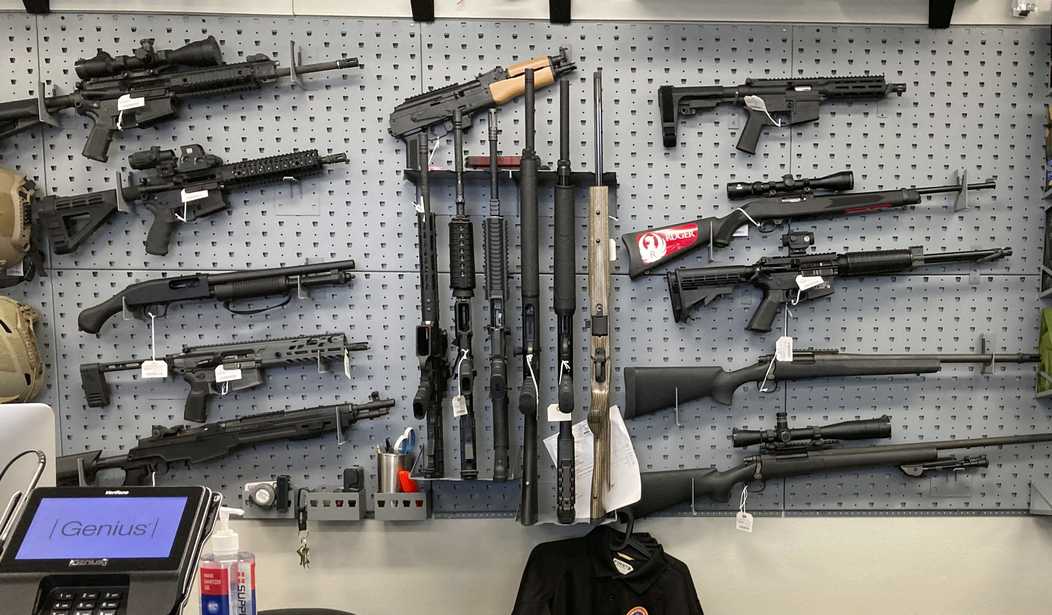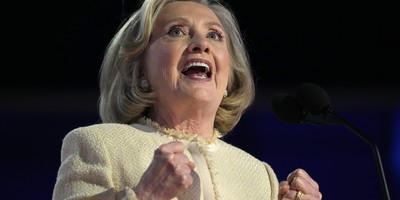"In New York," former Gov. Andrew Cuomo bragged on Sunday, "we passed the best (gun control) laws in the nation." Although those laws manifestly did not prevent the mass shooting that killed 10 people at a Buffalo supermarket on May 14, Cuomo thinks the answer is more legislation of the same sort.
Cuomo mentioned a federal "assault weapon" ban, and other politicians have responded to the Buffalo massacre by calling for expanded background checks and more aggressive enforcement of "red flag" laws that aim to disarm dangerous people. But those policies are fundamentally ill-suited to stopping would-be mass murderers from carrying out their plans.
The Buffalo shooter legally bought the Bushmaster XM-15 rifle he used in the attack from a gun dealer in Endicott, New York. According to the online manifesto that police attributed to the attacker, the rifle did not qualify as an "assault weapon" in New York at that point because it had been fitted with a fixed magazine.
The shooter easily reversed that modification so the gun could accept detachable magazines, and he reportedly used magazines that exceeded New York's 10-round limit. Although that change had practical implications, other workarounds allow New Yorkers to legally buy and own AR-15-style rifles like the Bushmaster XM-15 that are functionally identical to prohibited models.
As long as a rifle has none of the military-style features that New York prohibits (such as a pistol grip, a threaded barrel or a bayonet mount), it is not an "assault weapon," even if it accepts detachable magazines. Such "featureless" rifles are perfectly legal in New York, even though they fire the same ammunition at the same rate with the same muzzle velocity as the banned models.
Recommended
That is the basic problem with "assault weapon" bans: They define the category based on functionally unimportant features, leaving mass shooters with plenty of equally lethal alternatives, including the handguns they overwhelmingly prefer. While Cuomo thinks a federal ban could be effective if it also covered "large capacity" magazines, which come standard with many guns, millions of such magazines would remain in circulation.
The Buffalo shooter passed a background check when he bought his rifle because he did not have a disqualifying criminal or psychiatric record, which is typically true of mass shooters. According to a recent National Institute of Justice report on public mass shootings from 1966 through 2019, just 13% of the perpetrators obtained weapons through illegal transactions.
Even theoretically, a federal law requiring background checks for private gun transfers, as New York already does, would not pose an obstacle for the vast majority of mass shooters. And in a country where civilians own more than 400 million firearms, a would-be killer with a disqualifying record would not have much trouble finding a source willing to flout that rule, as gun owners routinely do in states that notionally require "universal background checks."
On the face of it, it seems more plausible that New York's red flag law could have stopped the Buffalo shooter if only it had been properly applied. After all, he was reported to state police as a high school senior last June because he mentioned murder in a written response to a question about his post-graduation plans.
The shooter successfully passed that off as a sick joke, and it may yet turn out that a more thorough investigation would have cast doubt on that explanation. But even fellow students who had known him for years apparently did not view him as a threat.
Predicting violence is much harder than supporters of red flag laws often imply. Psychiatrists are notoriously bad at it, and people who display what might look like "red flags" almost never commit crimes like this one.
Casting a wider net might or might not help prevent such attacks, but it certainly would ensnare many innocent people who do not actually pose a danger. When it comes to gun control, that is a perennial pitfall.
























Join the conversation as a VIP Member